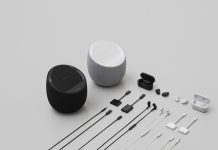Tour de Cure and Sony Foundation have today announced the largest Virtual Reality (VR) cancer research grant in Australia to three local research teams, with the aim of the research to help better understanding of rare and youth cancers, but also to hopefully ultimately find a cure also.
The three winning teams, from qualified Australian cancer research institutions, include:
- Professor Dan Catchpoole of The Children’s Hospital at Westmead,
- Professor Sean O’Donoghue of Garvan Institute of Medical Research
- Development Project Winner, Professor Alwan Chaun of UNSW and Liverpool Hospital, and
- Professor Kate Stevens from The MARCS Institute at Western Sydney University
The teams have been selected as recipients of the $520,000 grant, which will be divided between the teams depending on project needs and objectives, allowing the opportunity for the teams to access Sony Interactive Entertainment VR developer partners from around the world.
It is hoped that this new VR technology research will allow clinicians and medical experts to use VR to diagnose and possibly find a cure for cancer.
Sophie Ryan, Chief Executive Officer of Sony Foundation Australia has said the project was inspired by the idea of bringing two fields together to make ground-breaking discoveries to benefit young Australians.
We realised that Sony Foundation was in a unique position to help facilitate the collaboration between innovative Sony technology and its developers with cancer researchers to help close a gap in research specifically addressing youth cancer. We’re excited to see the new ground forged as a result of this research funding
The partnership between Sony Foundation and Tour de Cure encouraged grant applicants to partner with Sony’s Interactive Entertainment VR developers from across the globe to devise specialised content ideas to tackle the spectrum of cancer research challenges, with a particular focus on youth cancer, from diagnosis, treatment, prevention and ultimately the search for a cure.
Paul Mirabelle, Chairman of the Research, Support and Prevention Committee of Tour de Cure Australia has said that:
The quality of the applications speaks to the shared commitment in the research community to approach the fight against cancer… This truly unique program, will require close collaboration of traditional cancer research organisations with VR content creators across the interactive media industry to take the application of VR beyond pain management and distraction techniques, to a completely new realm.
Using VR technology to help treat and find a possible cure for cancer is certainly an interesting prospect and we will be keeping an eye out for any developments in the research from the three teams.




